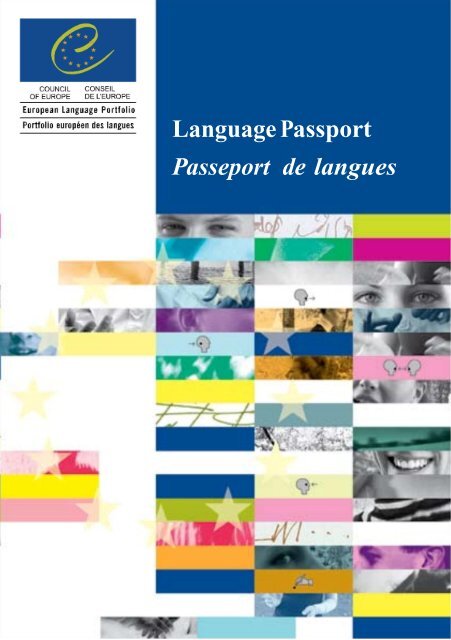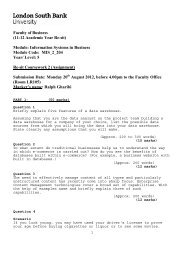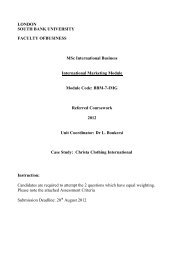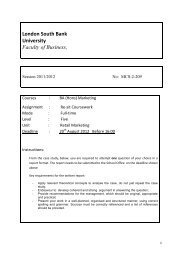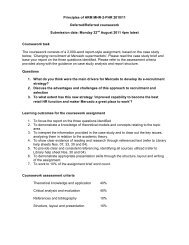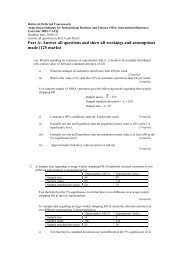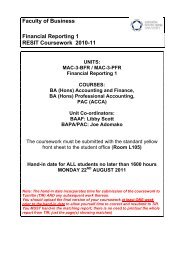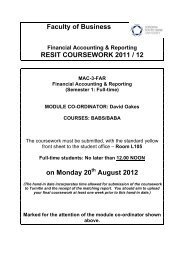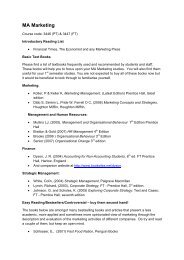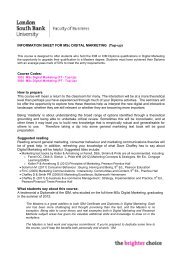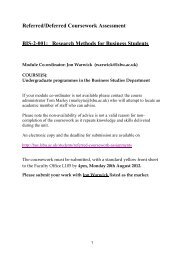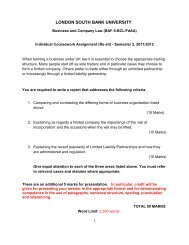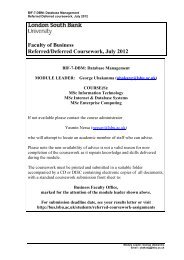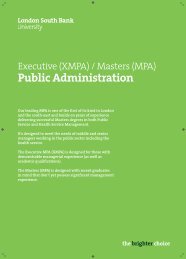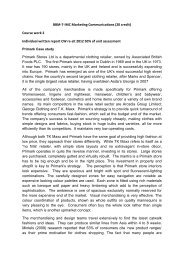Language Passport Passeport de langues
Language Passport Passeport de langues
Language Passport Passeport de langues
You also want an ePaper? Increase the reach of your titles
YUMPU automatically turns print PDFs into web optimized ePapers that Google loves.
<strong>Language</strong> <strong>Passport</strong><br />
<strong>Passeport</strong> <strong>de</strong> <strong>langues</strong>
European <strong>Language</strong> Portfolio : accredited mo<strong>de</strong>l No.9.2001-rev.2006<br />
Portfolio européen <strong>de</strong>s <strong>langues</strong> : modèle accrédité N°9.2001rev.2006<br />
This mo<strong>de</strong>l conforms to common Principles and Gui<strong>de</strong>lines.<br />
CounCil for CulTural Co-oPEraTion<br />
EDuCaTion CoMMiTTEE – ElP ValiDaTion CoMMiTTEE<br />
le présent modèle est conforme aux Principes et lignes<br />
directrices communs.<br />
ConSEil DE la CooPEraTion CulTurEllE<br />
CoMiTE DE l‟EDuCaTion – CoMiTE DE ValiDaTion Du PEl
Contents<br />
The Council of Europe/Le Conseil <strong>de</strong> l’Europe 2<br />
The <strong>Language</strong> <strong>Passport</strong>/Le passeport <strong>de</strong> <strong>langues</strong> 3<br />
Profile of language skills/Profil <strong>de</strong>s compétences linguistiques 4–5<br />
Self-assessment grid 6–7<br />
Grille pour l’auto-évaluation 8–9<br />
Summary of language-learning and intercultural experiences/<br />
Résumé <strong>de</strong>s expériences linguistiques et interculturelles 0– 3<br />
Certificates and diplomas/Certificats et diplômes 4– 5<br />
<strong>Language</strong> assessment scales – a comparison/<br />
Les échelles d’évaluation linguistique – une comparaison 6<br />
Useful contacts/Contacts utiles 7<br />
© CILT, the National Centre for <strong>Language</strong>s 2007<br />
ISBN 978- -904243-49-6
2<br />
The Council of Europe Le Conseil <strong>de</strong> l’Europe<br />
The Council of Europe is an intergovernmental<br />
organisation with its permanent headquarters in<br />
Strasbourg, France. Its primary goal is to promote<br />
the unity of the continent and guarantee the dignity<br />
of the citizens of Europe by ensuring respect for our<br />
fundamental values: <strong>de</strong>mocracy, human rights and the<br />
rule of law.<br />
One of its main aims is to promote awareness of<br />
a European cultural i<strong>de</strong>ntity and to <strong>de</strong>velop mutual<br />
un<strong>de</strong>rstanding among people of different cultures.<br />
In this context the Council of Europe is coordinating<br />
the introduction of a European <strong>Language</strong> Portfolio to<br />
support and give recognition to language learning and<br />
intercultural experiences at all levels.<br />
Contact:<br />
<strong>Language</strong> Policy Division, Strasbourg Directorate<br />
General IV Council of Europe, Strasbourg, France<br />
Website: www.coe.int/lang<br />
© 2000 Council of Europe, Strasbourg, France<br />
This <strong>Language</strong> <strong>Passport</strong> is part of the European<br />
<strong>Language</strong> Portfolio (ELP) issued by:<br />
CILT, the National Centre for <strong>Language</strong>s<br />
www.cilt.org.uk<br />
Le Conseil <strong>de</strong> l’Europe est une organisation<br />
intergouvernementale dont le siège permanent est<br />
à Strasbourg, France. Sa mission première est <strong>de</strong><br />
renforcer l’unité du continent et <strong>de</strong> protéger la dignité<br />
<strong>de</strong>s citoyens <strong>de</strong> l’Europe en veillant au respect <strong>de</strong> nos<br />
valeurs fondamentales: la démocratie, les droits <strong>de</strong><br />
l’homme et la prééminence du droit.<br />
Un <strong>de</strong> ses objectifs principaux est <strong>de</strong> susciter la prise<br />
<strong>de</strong> conscience d’une i<strong>de</strong>ntité culturelle européenne et<br />
<strong>de</strong> développer la compréhension mutuelle entre les<br />
peuples <strong>de</strong> cultures différentes. C’est dans ce contexte<br />
que le Conseil <strong>de</strong> l’Europe coordonne l’introduction<br />
d’un Portfolio Européen <strong>de</strong>s Langues, comme étant<br />
un document personnel fait pour encourager et<br />
faire reconnaître l’apprentissage <strong>de</strong>s <strong>langues</strong> et les<br />
expériences interculturelles <strong>de</strong> toutes sortes.<br />
Contact:<br />
Division <strong>de</strong>s Politiques Linguistiques, Strasbourg<br />
Direction Générale IV Conseil <strong>de</strong> l’Europe, Strasbourg,<br />
France<br />
site Internet: www.coe.int/lang.fr<br />
© 2000 Conseil <strong>de</strong> L’Europe, Strasbourg, France<br />
Ce <strong>Passeport</strong> <strong>de</strong> <strong>langues</strong> fait partie du Portfolio<br />
européen <strong>de</strong>s <strong>langues</strong> (PEL) remis par:<br />
CILT, the National Centre for <strong>Language</strong>s<br />
www.cilt.org.uk
The <strong>Language</strong> <strong>Passport</strong><br />
This document is a record of language skills,<br />
qualifications and experiences. It is part of a European<br />
<strong>Language</strong> Portfolio which consists of a <strong>Passport</strong>,<br />
a <strong>Language</strong> Biography and a Dossier containing<br />
materials which document and illustrate experiences<br />
and achievements. <strong>Language</strong> skills are <strong>de</strong>fined in<br />
terms of levels of proficiency presented in the document<br />
“A Common European Framework of reference for<br />
languages: learning, teaching, assessment”. The<br />
scale is illustrated in this <strong>Language</strong> <strong>Passport</strong> (Self-<br />
assessment grid).<br />
The <strong>Language</strong> <strong>Passport</strong> lists the languages in which<br />
the hol<strong>de</strong>r has some competence. The contents of this<br />
<strong>Language</strong> <strong>Passport</strong> are as follows:<br />
• a profile of language skills in relation to the<br />
Common European Framework<br />
• a résumé of language learning and intercultural<br />
experiences<br />
• a record of certificates and diplomas<br />
For further information, guidance and the levels of<br />
proficiency in a range of languages, consult the Council<br />
of Europe website: www.coe.int/portfolio.<br />
Name: Giulia Valentino - 3019914<br />
Nom:<br />
Le passeport <strong>de</strong><br />
<strong>langues</strong><br />
Ce document est un bilan <strong>de</strong>s savoir-faire, <strong>de</strong>s<br />
certifications ou <strong>de</strong>s diplômes ainsi que <strong>de</strong>s<br />
expériences vécues dans différentes <strong>langues</strong>. Il fait<br />
partie d’un Portfolio Européen <strong>de</strong>s Langues qui se<br />
compose du présent <strong>Passeport</strong>, d’une Biographie<br />
Langagière et d’un Dossier comprenant <strong>de</strong>s matériaux<br />
qui documentent et illustrent les expériences effectuées<br />
et les compétences acquises. Les compétences en<br />
<strong>langues</strong> sont décrites dans les termes <strong>de</strong>s niveaux <strong>de</strong><br />
compétence présentés dans le document «Un Cadre<br />
européen commun <strong>de</strong> référence pour les <strong>langues</strong>:<br />
apprendre, enseigner, évaluer». L’échelle est présentée<br />
dans le présent <strong>Passeport</strong> <strong>de</strong> <strong>langues</strong> (grille pour<br />
l’auto-évaluation).<br />
Le <strong>Passeport</strong> <strong>de</strong> <strong>langues</strong> inclut la liste <strong>de</strong>s <strong>langues</strong><br />
dans lesquelles le titulaire a <strong>de</strong>s compétences. Il se<br />
compose:<br />
• d’un profil <strong>de</strong>s compétences en <strong>langues</strong> en relation<br />
avec le Cadre Européen Commun<br />
• d’un résumé d’expériences linguistiques et<br />
interculturelles<br />
• d’une liste <strong>de</strong> certificats et diplômes<br />
Pour tout renseignement concernant les niveaux <strong>de</strong><br />
compétences en plusieurs <strong>langues</strong>, consultez le site<br />
Internet du Conseil <strong>de</strong> l’Europe: www.coe.int/portfolio/fr.<br />
3
4<br />
Profile of language skills<br />
Profil <strong>de</strong>s compétences linguistiques<br />
Mother tongue(s)<br />
Langue(s) mater nelle(s) Italian<br />
Other languages Spanish and English<br />
Autres <strong>langues</strong><br />
Self-assessment<br />
Auto-évaluation<br />
<strong>Language</strong> Langue<br />
<strong>Language</strong> Langue<br />
<strong>Language</strong> Langue<br />
Listening<br />
Ecouter<br />
Reading<br />
Lire<br />
Spoken interaction<br />
Prendre par t à une conversation<br />
Spoken production<br />
S’exprimer oralement en continu<br />
Writing<br />
Ecrire<br />
A1 A2 B1 B2 C1 C2<br />
English<br />
A1 A2 B1 B2 C1 C2<br />
Spanish<br />
A1 A2 B1 B2 C1 C2
Name<br />
Nom<br />
Self-assessment<br />
Auto-évaluation<br />
<strong>Language</strong> Langue<br />
<strong>Language</strong> Langue<br />
<strong>Language</strong> Langue<br />
<strong>Language</strong> Langue<br />
Listening<br />
Ecouter<br />
Reading<br />
Lire<br />
Spoken interaction<br />
Prendre par t à une conversation<br />
Spoken production<br />
S’exprimer oralement en continu<br />
Writing<br />
Ecrire<br />
A1 A2 B1 B2 C1 C2<br />
A1 A2 B1 B2 C1 C2<br />
A1 A2 B1 B2 C1 C2<br />
A1 A2 B1 B2 C1 C2<br />
5
Self-assessment grid<br />
Un<strong>de</strong>rstanding<br />
Listening<br />
Reading<br />
Speaking<br />
Spoken<br />
interaction<br />
Spoken<br />
production<br />
Writing<br />
Writing<br />
6<br />
A1 A2 B1<br />
I can un<strong>de</strong>rstand familiar words and<br />
very basic phrases concerning<br />
myself, my family and immediate<br />
concrete surroundings when people<br />
speak slowly and clearly.<br />
I can un<strong>de</strong>rstand familiar names,<br />
words and very simple sentences,<br />
for example on notices and posters<br />
or in catalogues.<br />
I can interact in a simple way<br />
provi<strong>de</strong>d the other person is prepared<br />
to repeat or rephrase things at a<br />
slower rate of speech and help me<br />
formulate what<br />
I‟m trying to say.<br />
I can ask and answer simple<br />
questions in areas of immediate need<br />
or on very familiar topics.<br />
I can use simple phrases and sen-<br />
tences to <strong>de</strong>scribe where I live and<br />
people I know.<br />
I can write a short, simple postcard,<br />
for example sending holiday greetings.<br />
I can fill in forms with personal<br />
<strong>de</strong>tails, for example entering my<br />
name, nationality and address on a<br />
hotel registration form.<br />
I can un<strong>de</strong>rstand phrases and the<br />
highest frequency vocabulary related<br />
to areas of most immediate<br />
personal<br />
relevance (e.g. very basic personal<br />
and family information, shopping,<br />
local area, employment).<br />
I can catch the main point in<br />
short, clear, simple messages<br />
and announcements.<br />
I can read very short, simple texts. I<br />
can find specific, predictable<br />
information in simple everyday<br />
material such as advertisements,<br />
prospectuses, menus and<br />
timetables and I can un<strong>de</strong>rstand<br />
short simple personal letters.<br />
I can communicate in simple and<br />
routine tasks requiring a simple<br />
and direct exchange of information<br />
on familiar topics and activities.<br />
I can handle very short social<br />
exchanges, even though I can‟t<br />
usually un<strong>de</strong>rstand enough to keep<br />
the conversation going myself.<br />
I can use a series of phrases and<br />
sentences to <strong>de</strong>scribe in simple<br />
terms my family and other people,<br />
living conditions, my educational<br />
background and my present or<br />
most recent job.<br />
I can write short, simple notes and<br />
messages. I can write a very<br />
simple personal letter, for example<br />
thanking someone for something.<br />
I can un<strong>de</strong>rstand the main points of<br />
clear standard speech on familiar<br />
matters regularly encountered in work,<br />
school, leisure, etc. I can un<strong>de</strong>rstand<br />
the main point of many radio or TV<br />
programmes on current affairs or<br />
topics of personal or professional<br />
interest when the <strong>de</strong>livery is relatively<br />
slow and clear.<br />
I can un<strong>de</strong>rstand texts that consist<br />
mainly of high frequency everyday or<br />
job-related language.I can<br />
un<strong>de</strong>rstand the <strong>de</strong>scription of events,<br />
feelings and wishes in personal<br />
letters.<br />
I can <strong>de</strong>al with most situations likely<br />
to arise whilst travelling in an area<br />
where the language is spoken.<br />
I can enter unprepared into<br />
conversation on topics that are<br />
familiar, of personal interest or<br />
pertinent to everyday life (e.g. family,<br />
hobbies, work, travel and current<br />
events).<br />
I can connect phrases in a simple<br />
way in or<strong>de</strong>r to <strong>de</strong>scribe experiences<br />
and events, my dreams, hopes and<br />
ambitions. I can briefly give<br />
reasons and explanations for<br />
opinions and plans.<br />
I can narrate a story or relate the<br />
plot of a book or film and <strong>de</strong>scribe<br />
my reactions.<br />
I can write simple connected<br />
text on topics which are familiar<br />
or of personal interest.<br />
I can write personal letters <strong>de</strong>scribing<br />
experiences and impressions.
B2 C1 C2<br />
I can un<strong>de</strong>rstand exten<strong>de</strong>d speech<br />
and lectures and follow even complex<br />
lines of argument provi<strong>de</strong>d the topic<br />
is reasonably familiar. I can<br />
un<strong>de</strong>rstand most TV news and<br />
current affairs programmes. I can<br />
un<strong>de</strong>rstand the majority of films in<br />
standard dialect.<br />
I can read articles and reports con-<br />
cerned with contemporary<br />
problems in which the writers<br />
adopt particular attitu<strong>de</strong>s or<br />
viewpoints.I can un<strong>de</strong>rstand<br />
contemporary literary prose.<br />
I can interact with a <strong>de</strong>gree of fluency<br />
and spontaneity that makes regular<br />
interaction with native speakers<br />
quite possible.<br />
I can take an active part in<br />
discussion<br />
in familiar contexts, accounting for<br />
and sustaining my views.<br />
I can present clear, <strong>de</strong>tailed<br />
<strong>de</strong>scriptions on a wi<strong>de</strong> range of<br />
subjects related to my field of<br />
interest. I can explain a viewpoint on<br />
a topical issue giving the advantages<br />
and disadvantages of various<br />
options.<br />
I can write clear, <strong>de</strong>tailed text on a<br />
wi<strong>de</strong> range of subjects related to<br />
my interests.<br />
I can write an essay or report, passing<br />
on information or giving reasons in<br />
support of or against a particular point<br />
of view.<br />
I can write letters highlighting the<br />
personal significance of events<br />
and experiences.<br />
I can un<strong>de</strong>rstand exten<strong>de</strong>d speech<br />
even when it is not clearly<br />
structured and when relationships<br />
are only implied and not signalled<br />
explicitly. I<br />
can un<strong>de</strong>rstand television<br />
programmes and films without too<br />
much effort.<br />
I can un<strong>de</strong>rstand long and complex<br />
factual and literary texts,<br />
appreciating distinctions of style. I<br />
can un<strong>de</strong>rstand specialised articles<br />
and longer tech- nical instructions,<br />
even when they do not relate to my<br />
field.<br />
I can express myself fluently and<br />
spontaneously without much obvious<br />
searching for expressions. I can use<br />
language flexibly and effectively for<br />
social and professional purposes.<br />
I can formulate i<strong>de</strong>as and opinions<br />
with precision and relate my<br />
contri- bution skilfully to those of<br />
other speakers.<br />
I can present clear, <strong>de</strong>tailed<br />
<strong>de</strong>scriptions of complex subjects<br />
integrating sub-themes, <strong>de</strong>veloping<br />
particular points and rounding off with<br />
an appropriate conclusion.<br />
I can express myself in clear,<br />
well-structured text, expressing points<br />
of view at some length. I can write<br />
about complex subjects in a letter,<br />
an essay or a report, un<strong>de</strong>rlining<br />
what<br />
I consi<strong>de</strong>r to be the salient<br />
issues. I can select a style<br />
appropriate to the rea<strong>de</strong>r in mind.<br />
I have no difficulty in un<strong>de</strong>rstanding<br />
any kind of spoken language,<br />
whether live or broadcast, even<br />
when <strong>de</strong>livered at fast native speed,<br />
provi<strong>de</strong>d I have some time to get<br />
familiar with the accent.<br />
I can read with ease virtually all forms<br />
of the written language, including<br />
abstract, structurally or linguistically<br />
complex texts such as manuals,<br />
specialised articles and literary<br />
works.<br />
I can take part effortlessly in any<br />
conversation or discussion and have<br />
a good familiarity with idiomatic<br />
expressions and colloquialisms.<br />
I can express myself fluently and<br />
convey finer sha<strong>de</strong>s of meaning<br />
precisely. If I do have a problem I can<br />
backtrack and restructure around the<br />
difficulty so smoothly that other<br />
people are hardly aware of it.<br />
I can present a clear, smoothlyflowing<br />
<strong>de</strong>scription or argument in a<br />
style appropriate to the context and<br />
with an effective logical structure<br />
which helps the recipient to notice<br />
and remember significant points.<br />
I can write clear, smoothlyflowing<br />
text in an appropriate<br />
style.<br />
I can write complex letters, reports<br />
or articles which present a case with<br />
an effective logical structure which<br />
helps the recipient to notice and<br />
remember significant points.<br />
I can write summaries and reviews<br />
of professional or literary works.
Grille pour l’auto-évaluation<br />
Comprendre<br />
Ecouter<br />
Lire<br />
Parler<br />
Prendre par t<br />
à une<br />
conversation<br />
S‟exprimer<br />
oralement<br />
en continu<br />
Ecrire<br />
Ecrire<br />
8<br />
A1 A2 B1<br />
Je peux comprendre <strong>de</strong>s mots<br />
familiers et <strong>de</strong>s expressions très<br />
courantes au sujet <strong>de</strong> moimême,<br />
<strong>de</strong> ma famille et <strong>de</strong><br />
l‟environnement concret et<br />
immédiat, si les gens parlent<br />
lentement et distinctement.<br />
Je peux comprendre <strong>de</strong>s noms<br />
familiers, <strong>de</strong>s mots ainsi que <strong>de</strong>s<br />
phrases très simples, par exemple<br />
dans <strong>de</strong>s annonces, <strong>de</strong>s affiches<br />
ou <strong>de</strong>s catalogues.<br />
Je peux communiquer, <strong>de</strong> façon<br />
simple, à condition que<br />
l‟interlocuteur soit disposé à répéter<br />
ou à reformuler ses phrases plus<br />
lentement et à m‟ai<strong>de</strong>r à formuler ce<br />
que j‟essaie<br />
<strong>de</strong> dire.<br />
Je peux poser <strong>de</strong>s questions simples<br />
sur <strong>de</strong>s sujets familiers ou sur ce<br />
dont j‟ai immédiatement besoin,<br />
ainsi que répondre à <strong>de</strong> telles<br />
questions.<br />
Je peux utiliser <strong>de</strong>s expressions et<br />
<strong>de</strong>s phrases simples pour décrire mon<br />
lieu d‟habitation et les gens que<br />
je connais.<br />
Je peux écrire une courte carte<br />
postale simple, par exemple <strong>de</strong><br />
vacances.<br />
Je peux porter <strong>de</strong>s détails<br />
personnels dans un questionnaire,<br />
inscrire par exemple mon nom, ma<br />
nationalité et mon adresse sur une<br />
fiche d‟hôtel.<br />
Je peux comprendre <strong>de</strong>s expressions<br />
et un vocabulaire très fréquent relatifs<br />
à ce qui me concerne <strong>de</strong> très près<br />
(par ex. moi-même, ma famille, les<br />
achats, l‟environnement proche, le<br />
travail).<br />
Je peux saisir l‟essentiel d‟annonces<br />
et <strong>de</strong> messages simples et clairs.<br />
Je peux lire <strong>de</strong>s textes courts<br />
très simples.<br />
Je peux trouver une information<br />
particulière prévisible dans <strong>de</strong>s<br />
documents courants comme les<br />
petites publicités, les prospectus,<br />
les menus et les horaires et je<br />
peux<br />
comprendre <strong>de</strong>s lettres<br />
personnelles courtes et simples.<br />
Je peux communiquer lors <strong>de</strong> tâches<br />
simples et habituelles ne <strong>de</strong>mandant<br />
qu‟un échange d‟informations<br />
simple et direct sur <strong>de</strong>s sujets et <strong>de</strong>s<br />
activités familiers. Je peux avoir <strong>de</strong>s<br />
échanges très brefs même si, en<br />
règle générale, je ne comprends pas<br />
assez pour poursuivre une<br />
conversation.<br />
Je peux utiliser une série <strong>de</strong><br />
phrases ou d‟expressions pour<br />
décrire<br />
en termes simples ma famille et<br />
d‟autres gens, mes conditions <strong>de</strong><br />
vie, ma formation et mon activité<br />
professionnelle actuelle ou<br />
récente.<br />
Je peux écrire <strong>de</strong>s notes et<br />
messages simples et courts. Je peux<br />
écrire une lettre personnelle très<br />
simple, par exemple <strong>de</strong><br />
remerciements.<br />
Je peux comprendre les points<br />
essentiels quand un langage clair et<br />
standard est utilisé et s‟il s‟agit <strong>de</strong> sujets<br />
familiers concernant le travail, l‟école, les<br />
loisirs, etc.<br />
Je peux comprendre l‟essentiel <strong>de</strong><br />
nombreuses émissions <strong>de</strong> radio ou <strong>de</strong><br />
télévision sur l‟actualité ou sur <strong>de</strong>s sujets<br />
qui m‟intéressent à titre personnel ou<br />
professionnel si l‟on parle d‟une façon<br />
relativement lente et distincte.<br />
Je peux comprendre <strong>de</strong>s textes<br />
rédigés essentiellement dans une<br />
langue courante ou relative à mon<br />
travail.<br />
Je peux comprendre la<br />
<strong>de</strong>scription d‟événements,<br />
l‟expression <strong>de</strong> sentiments et <strong>de</strong><br />
souhaits dans <strong>de</strong>s lettres<br />
personnelles.<br />
Je peux faire face à la majorité <strong>de</strong>s<br />
situations que l‟on peut rencontrer<br />
au cours d‟un voyage dans une<br />
région où la langue est parlée. Je<br />
peux prendre part sans préparation<br />
à une conversation sur <strong>de</strong>s sujets<br />
familiers ou d‟intérêt personnel ou<br />
qui concernent la vie quotidienne (par<br />
exemple famille, loisirs, travail,<br />
voyage et actualité).<br />
Je peux articuler <strong>de</strong>s expressions<br />
<strong>de</strong> manière simple afin <strong>de</strong> raconter<br />
<strong>de</strong>s expériences et <strong>de</strong>s<br />
événements, mes rêves, mes<br />
espoirs ou mes buts. Je peux<br />
brièvement donner les raisons et<br />
explications <strong>de</strong> mes opinions ou<br />
projets. Je peux raconter une<br />
histoire ou l‟intrigue d‟un livre ou<br />
d‟un film et exprimer mes réactions.<br />
Je peux écrire un texte simple et<br />
cohérent sur <strong>de</strong>s sujets familiers<br />
ou qui m‟intéressent<br />
personnellement.<br />
Je peux écrire <strong>de</strong>s lettres<br />
personnelles pour décrire<br />
expériences et impressions.
B2 C1 C2<br />
Je peux comprendre <strong>de</strong>s conférences<br />
et <strong>de</strong>s discours assez longs et même<br />
suivre une argumentation complexe<br />
si le sujet m‟en est relativement<br />
familier. Je peux comprendre la<br />
plupart <strong>de</strong>s émissions <strong>de</strong> télévision<br />
sur l‟actualité et les informations.<br />
Je peux comprendre la plupart<br />
<strong>de</strong>s films en langue standard.<br />
Je peux lire <strong>de</strong>s articles et <strong>de</strong>s<br />
rapports sur <strong>de</strong>s questions<br />
contemporaines<br />
dans lesquels les auteurs adoptent<br />
une attitu<strong>de</strong> particulière ou un certain<br />
point <strong>de</strong> vue. Je peux comprendre un<br />
texte littéraire contemporain en<br />
prose.<br />
Je peux communiquer avec un <strong>de</strong>gré<br />
<strong>de</strong> spontanéité et d‟aisance qui ren<strong>de</strong><br />
possible une interaction normale<br />
avec un locuteur natif. Je peux<br />
participer activement à une<br />
conversation dans <strong>de</strong>s situations<br />
familières, présenter et défendre<br />
mes opinions.<br />
Je peux m‟exprimer <strong>de</strong> façon claire<br />
et détaillée sur une gran<strong>de</strong> gamme<br />
<strong>de</strong> sujets relatifs à mes centres<br />
d‟intérêt. Je peux développer un<br />
point <strong>de</strong> vue sur un sujet d‟actualité<br />
et expliquer<br />
les avantages et les inconvénients<br />
<strong>de</strong> différentes possibilités.<br />
Je peux écrire <strong>de</strong>s textes clairs et<br />
détaillés sur une gran<strong>de</strong> gamme <strong>de</strong><br />
sujets relatifs à mes intérêts. Je peux<br />
écrire un essai ou un rapport en<br />
transmettant une information ou en<br />
exposant <strong>de</strong>s raisons pour ou contre<br />
une opinion donnée. Je peux écrire<br />
<strong>de</strong>s lettres qui mettent en valeur le<br />
sens<br />
que j‟attribue personnellement<br />
aux événements et aux<br />
expériences.<br />
Je peux comprendre un long<br />
discours même s‟il n‟est pas<br />
clairement structuré et que les<br />
articulations sont seulement<br />
implicites.<br />
Je peux comprendre les émissions<br />
<strong>de</strong> télévision et les films sans<br />
trop d‟effort.<br />
Je peux comprendre <strong>de</strong>s<br />
textes factuels ou littéraires<br />
longs et complexes et en<br />
apprécier les différences <strong>de</strong><br />
style.<br />
Je peux comprendre <strong>de</strong>s articles<br />
spécialisés et <strong>de</strong> longues<br />
instructions techniques même<br />
lorsqu‟ils ne sont pas en relation<br />
avec mon domaine.<br />
Je peux m‟exprimer spontanément<br />
et couramment sans trop<br />
apparemment <strong>de</strong>voir chercher mes<br />
mots. Je peux utiliser la langue <strong>de</strong><br />
manière souple et efficace pour <strong>de</strong>s<br />
relations sociales<br />
ou professionnelles. Je peux<br />
exprimer mes idées et opinions avec<br />
précision et lier mes interventions à<br />
celles <strong>de</strong> mes interlocuteurs.<br />
Je peux présenter <strong>de</strong>s <strong>de</strong>scriptions<br />
claires et détaillées <strong>de</strong> sujets<br />
complexes, en intégrant <strong>de</strong>s<br />
thèmes qui leur sont liés, en<br />
développant certains points et en<br />
terminant mon intervention <strong>de</strong><br />
façon appropriée.<br />
Je peux m‟exprimer dans un texte<br />
clair et bien structuré et développer<br />
mon point <strong>de</strong> vue. Je peux écrire sur<br />
<strong>de</strong>s sujets complexes dans une lettre,<br />
un essai ou un rapport, en soulignant<br />
les points que je juge importants.<br />
Je peux adopter un style adapté<br />
au <strong>de</strong>stinataire.<br />
Je n‟ai aucune difficulté à comprendre<br />
le langage oral, que ce soit dans<br />
les conditions du direct ou dans<br />
les médias et quand on parle vite, à<br />
condition d‟avoir du temps pour me<br />
familiariser avec un accent<br />
particulier.<br />
Je peux lire sans effort tout type <strong>de</strong><br />
texte, même abstrait ou complexe<br />
quant au fond ou à la forme, par<br />
exemple un manuel, un article<br />
spécia lisé ou une œuvre littéraire.<br />
Je peux participer sans effort à<br />
toute conversation ou discussion<br />
et je suis aussi très à l‟aise avec<br />
les expressions idiomatiques et<br />
les tournures courantes. Je<br />
peux<br />
m‟exprimer couramment et exprimer<br />
avec précision <strong>de</strong> fines nuances <strong>de</strong><br />
sens. En cas <strong>de</strong> difficulté, je peux<br />
faire marche arrière pour y remédier<br />
avec assez d‟habileté et pour qu‟elle<br />
passe presque inaperçue.<br />
Je peux présenter une <strong>de</strong>scription ou<br />
une argumentation claire et flui<strong>de</strong><br />
dans un style adapté au contexte,<br />
construire une présentation <strong>de</strong> façon<br />
logique et ai<strong>de</strong>r mon auditeur à<br />
remarquer et à se rappeler les points<br />
importants.<br />
Je peux écrire un texte clair, flui<strong>de</strong><br />
et stylistiquement adapté aux<br />
circons- tances. Je peux rédiger <strong>de</strong>s<br />
lettres, rapports ou articles<br />
complexes, avec une construction<br />
claire permettant au lecteur d‟en<br />
saisir et <strong>de</strong> mémoriser<br />
les points importants. Je peux résumer<br />
et critiquer par écrit un ouvrage<br />
professionnel ou une œuvre littéraire.<br />
9
Summary of language learning and intercultural experiences<br />
Résumé <strong>de</strong>s expériences linguistiques et interculturelles<br />
<strong>Language</strong> learning and use in country/region where the<br />
language is not spoken:<br />
Apprentissage et utilisation <strong>de</strong> la langue dans le pays/<br />
la région où la langue n’est pas utilisée:<br />
Primary/secondary/vocational education<br />
Enseignement primaire / secondaire / professionnel<br />
Higher education<br />
Enseignement supérieur<br />
Adult education<br />
Education <strong>de</strong>s adultes<br />
Other courses<br />
Autres cours<br />
Regular use in the workplace<br />
Utilisation régulière sur le lieu <strong>de</strong> travail<br />
Regular contact with speakers of the language<br />
Contacts réguliers avec <strong>de</strong>s locuteurs <strong>de</strong> cette langue<br />
Other<br />
Autre<br />
<strong>Language</strong>:<br />
Spanish<br />
Langue:<br />
Further information on language and intercultural experiences<br />
Informations complémentaires concernant <strong>de</strong>s expériences<br />
linguistiques et interculturelles<br />
è1 è3 è5 5è è1 è3 è5 5è
Name<br />
Nom<br />
è1 Up to year<br />
Jusqu’à 1 an<br />
è3 Up to 3 years<br />
Jusqu’à 3 ans<br />
è5 Up to 5 years<br />
Jusqu’à 5 ans<br />
5è Over 5 years<br />
Plus <strong>de</strong> 5 ans<br />
è1 è3 è5 5è è1 è3 è5 5è è1 è3 è5 5è è1 è3 è5 5è
2<br />
Summary of language learning and intercultural experiences<br />
Résumé <strong>de</strong>s expériences linguistiques et interculturelles<br />
Stays in a region where the language is spoken:<br />
Séjours dans une région où la langue est utilisée:<br />
Attending a language course<br />
Par ticipation à un cours <strong>de</strong> langue<br />
Using the language for study or training<br />
Etu<strong>de</strong>s, formation dans la langue<br />
Using the language at work<br />
Utilisation professionnelle <strong>de</strong> la langue<br />
Other<br />
Autre<br />
<strong>Language</strong>:<br />
Langue:<br />
Further information on language and intercultural experiences<br />
Informations complémentaires concernant <strong>de</strong>s expériences<br />
linguistiques et interculturelles<br />
è1 è3 è5 5è è1 è3 è5 5è
Name<br />
Nom<br />
è1 Up to month<br />
Jusqu’à 1 mois<br />
è3 Up to 3 months<br />
Jusqu’à 3 mois<br />
è5 Up to 5 months<br />
Jusqu’à 5 mois<br />
5è Over 5 months<br />
Plus <strong>de</strong> 5 mois<br />
è1 è3 è5 5è è1 è3 è5 5è è1 è3 è5 5è è1 è3 è5 5è<br />
3
4<br />
Certificates and diplomas<br />
Certificats et diplômes<br />
<strong>Language</strong><br />
Langue<br />
Level Niveau<br />
A1 A2 B1 B2 C1 C2
Title<br />
Intitulé<br />
Name<br />
Nom<br />
Awar<strong>de</strong>d by<br />
Délivré par<br />
Year<br />
Année<br />
5
6<br />
<strong>Language</strong> assessment scales – a comparison<br />
Les échelles d’évaluation linguistiques – une comparaison<br />
This chart indicates how, approximately, European and UK frameworks and qualifications compare. Further<br />
sources of information are given on the last page of the <strong>Passport</strong>.<br />
LEvEL<br />
Common<br />
European<br />
Framework<br />
(Council of<br />
Europe Global<br />
Scale)<br />
UK National<br />
<strong>Language</strong><br />
Standards<br />
(revised 2005)<br />
SCALE<br />
<strong>Language</strong>s<br />
Lad<strong>de</strong>r 1 Stages<br />
A Breakthrough Entry Level Breakthrough:<br />
gra<strong>de</strong>s –3<br />
A2 Waystage Level Preliminary:<br />
gra<strong>de</strong>s 4–6<br />
B Threshold Level 2 Intermediate:<br />
gra<strong>de</strong>s 7–9<br />
B2 Vantage Level 3 Advanced:<br />
gra<strong>de</strong>s 0– 2<br />
C Effective<br />
Operational<br />
Proficiency<br />
Level 4 Proficiency:<br />
gra<strong>de</strong>s 3– 5<br />
C2 Mastery Level 5 Mastery:<br />
gra<strong>de</strong>s 6 & 7<br />
Common<br />
English/Welsh/<br />
Northern<br />
Irish General<br />
Qualifications<br />
Scottish<br />
National Units,<br />
Courses and<br />
Group Awards<br />
Entry –3 Access 3<br />
Foundation<br />
Standard<br />
Foundation<br />
GCSE<br />
Higher<br />
GCSE<br />
Intermediate<br />
General Standard<br />
Gra<strong>de</strong><br />
Intermediate 2<br />
Credit Standard<br />
Gra<strong>de</strong><br />
AS/A/AEA Advanced Higher<br />
Higher 2<br />
Honours <strong>de</strong>gree Honours <strong>de</strong>gree<br />
Postgraduate,<br />
e.g. professional<br />
linguist<br />
The <strong>Language</strong>s Lad<strong>de</strong>r, the national recognition scheme for languages in England; for more infor mation see<br />
www.dfes.gov.uk/languages<br />
2 The Scottish Higher qualification is <strong>de</strong>emed to be midway between B and B2<br />
Postgraduate
Useful contacts<br />
Contacts utiles<br />
www.coe.int/portfolio<br />
information on the Council of Europe and ElP<br />
<strong>de</strong>velopments in other countries. To download the<br />
self-assessment grid from the Common European<br />
framework in a variety of languages, select „levels‟<br />
from the main menu.<br />
www.cilt.org.uk<br />
further information about the adult and junior ElPs and<br />
the work of CilT, the national Centre for languages.<br />
Details of resources and support for language learning<br />
and teaching throughout the uK.<br />
www.cilt.org.uk/standards<br />
The uK national language Standards, in a<br />
downloadable file. information about the national<br />
occupational Standards in Translation and in<br />
interpreting.<br />
www.accreditedqualifications.org.uk<br />
online database of accredited qualifications in England,<br />
Wales and northern ireland.<br />
www.sqa.org.uk<br />
Scottish Qualifications authority.<br />
www.blis.org.uk<br />
one-stop online shop for language and cultural<br />
expertise, including <strong>de</strong>tails of job vacancies and<br />
language courses.


